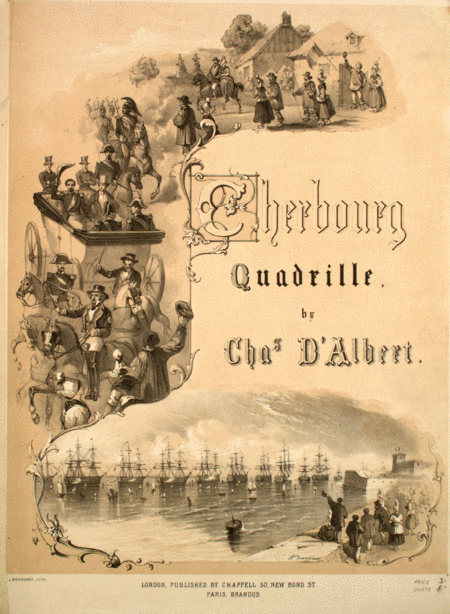Piano, 4-hands - Digital Download SKU: LV.7834 Composed by Charles D'Albert. Bodies of water, Ships, Piers & wharves, Farewells, Forts & fortifications, Crowds, Barns, Dwellings, Carriages & coaches, Horseback riding, Social classes. Lester S. Levy Collection. 11 pages. Published by Johns Hopkins University Sheridan Libraries (LV.7834). Cherbourg Quadrille. by Chas. D'Albert. Published [n.d.] by Chappell, 50 New Bond St. in London. Composition of five da capo movements with piano four-hands instrumentation. Subject headings for this piece include Bodies of water, Ships, Piers & wharves, Farewells, Forts & fortifications, Crowds, Barns, Dwellings, Carriages & coaches, Horseback riding, Social classes. About The Lester S. Levy CollectionThe Lester S. Levy Collection of Sheet Music consists of over 29,000 pieces of American popular music. Donated to Johns Hopkins University Sheridan Libraries, the collection's strength is its thorough documentation of nineteenth-century American through popular music. This sheet music has been provided by Project Gado, a San Francisco Bay Area startup whose mission is to digitize and share the world's visual history.WARNING: These titles are provided as historical documents. Language and concepts within reflect the opinions and values of the time and may be offensive to some.
